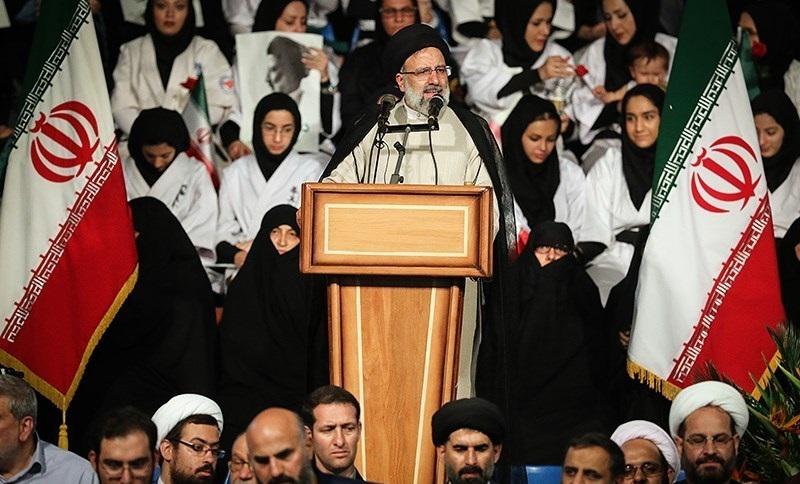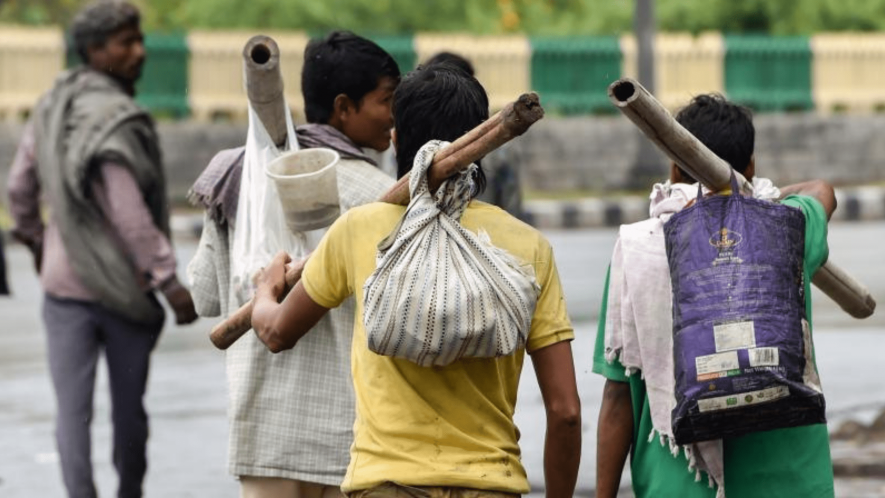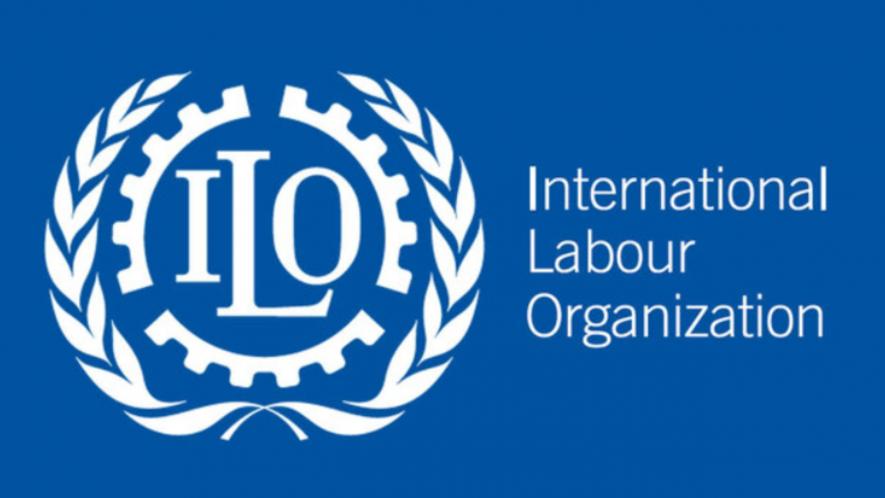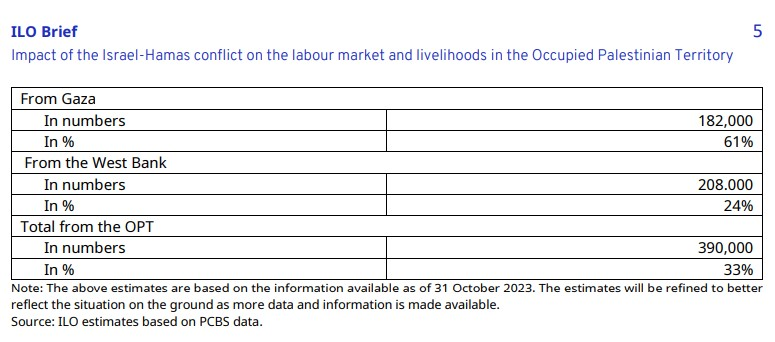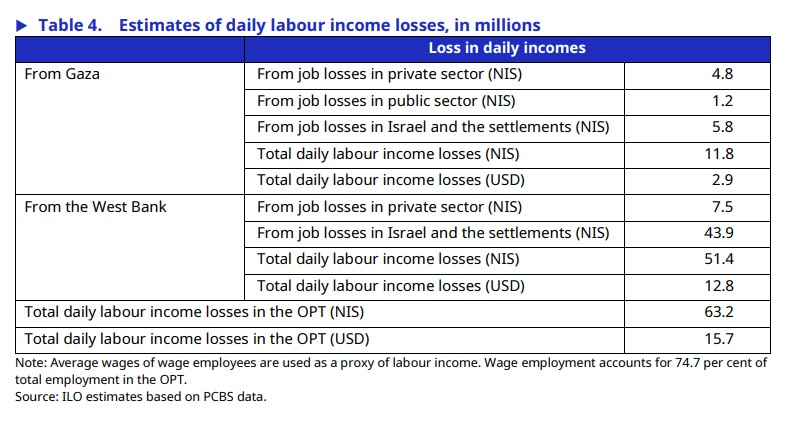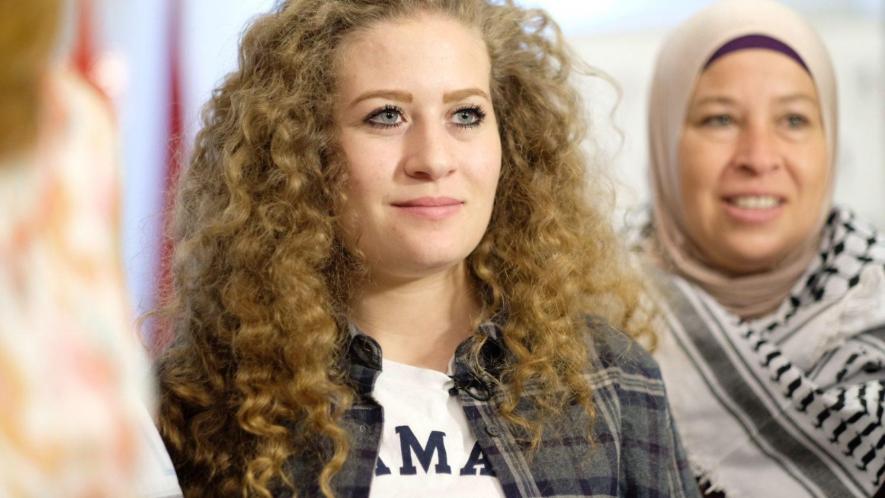The People of the World Declare: “Palestine will be free!”
November 4 marked an International Day of Solidarity with Palestine as people took to the streets in over 300 cities across the world to demand an immediate ceasefire in Gaza and to stand with the Palestinian people in their struggle for liberation.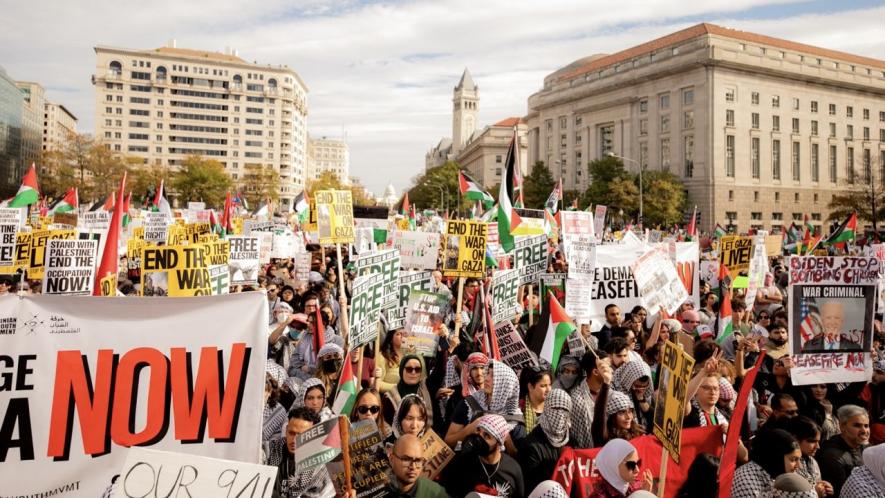
November 4 was an international day of solidarity with Palestine. The protest held in Washington DC was the largest in US history for Palestine. Photo: Sofia Pérez
Israel has killed over 10,000 Palestinians in 30 days of its relentless, genocidal bombardment of besieged Gaza. Armed to the teeth by the US, and emboldened by corporate-controlled mainstream media insistent on dehumanizing and admonishing the Palestinian people, Israel has destroyed ambulances, hospitals, schools, and homes, and bombed refugee camps whose very origins lay in the horrors of the Nakba of 1948.
While Israel continues to be shielded by its imperialist patrons, as resolution after resolution fails in the UN Security Council, the millions-strong, historic wave of mobilizations that have taken place globally in the past month have sent a clear message— the ruling elite do not speak for the people, and the people stand with Palestine.
On November 4, organizations in over 300 cities across the world joined a call issued by the International Peoples’ Assembly for an International Day of Solidarity with Palestine, to demand an immediate ceasefire in Gaza, an end to the blockade, and to stand with the Palestinian people in their struggle for liberation.

November 4 was an international day of solidarity with Palestine. The protest held in Washington DC was the largest in US history for Palestine. Photo: Sofia Pérez
Israel has killed over 10,000 Palestinians in 30 days of its relentless, genocidal bombardment of besieged Gaza. Armed to the teeth by the US, and emboldened by corporate-controlled mainstream media insistent on dehumanizing and admonishing the Palestinian people, Israel has destroyed ambulances, hospitals, schools, and homes, and bombed refugee camps whose very origins lay in the horrors of the Nakba of 1948.
While Israel continues to be shielded by its imperialist patrons, as resolution after resolution fails in the UN Security Council, the millions-strong, historic wave of mobilizations that have taken place globally in the past month have sent a clear message— the ruling elite do not speak for the people, and the people stand with Palestine.
On November 4, organizations in over 300 cities across the world joined a call issued by the International Peoples’ Assembly for an International Day of Solidarity with Palestine, to demand an immediate ceasefire in Gaza, an end to the blockade, and to stand with the Palestinian people in their struggle for liberation.
North America
Over 300,000 people gathered in Washington DC on Saturday for the biggest Palestine solidarity demonstration in US history as chants of “Biden, Biden, you can’t hide. We charge you with genocide!” rang through the capital.
“We are here because Palestine reveals the naked hypocrisy of western universalism, it reveals our enduring colonial reality, and it offers a glimpse into a future without colonialism,” declared Palestinian human rights attorney, Noura Erakat.
“We are like olive trees like the ones that our ancestors planted, we are unshaken, we are unmoved, we are undeniable. Stand with us in this promise, we promise, Palestine still promises, that we will all be free!”
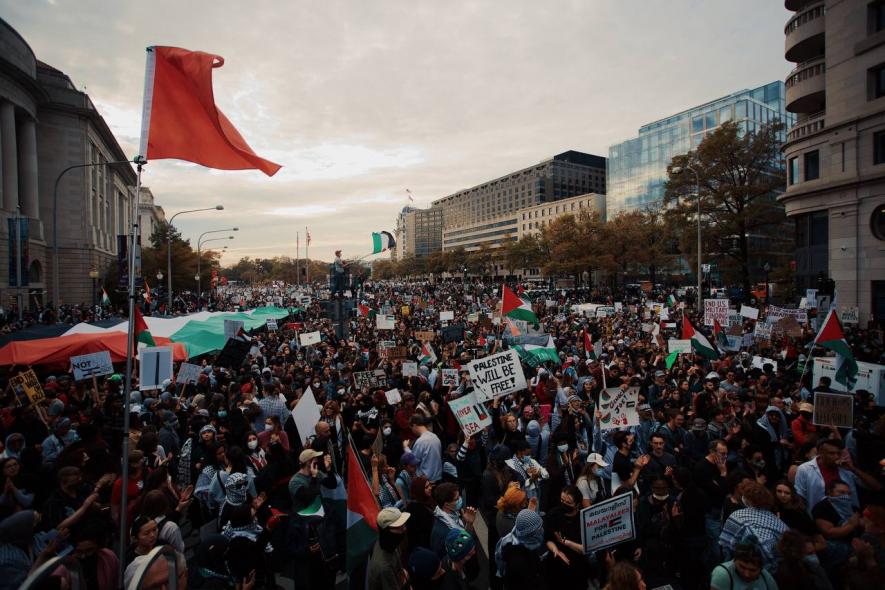
Over 300,000 people gathered in Washington DC. Photo: Ikhlas Captures
In Canada, protests were held in over 30 cities, including in Kingston, Ottawa, Toronto, and Winnipeg following a call issued by the Palestinian Youth Movement (PYM) for a national day of demonstrations. Thousands of people gathered in the streets of Montreal, chanting “Free, Free Palestine!” and “Justice Now!”.
Over 300,000 people gathered in Washington DC on Saturday for the biggest Palestine solidarity demonstration in US history as chants of “Biden, Biden, you can’t hide. We charge you with genocide!” rang through the capital.
“We are here because Palestine reveals the naked hypocrisy of western universalism, it reveals our enduring colonial reality, and it offers a glimpse into a future without colonialism,” declared Palestinian human rights attorney, Noura Erakat.
“We are like olive trees like the ones that our ancestors planted, we are unshaken, we are unmoved, we are undeniable. Stand with us in this promise, we promise, Palestine still promises, that we will all be free!”

Over 300,000 people gathered in Washington DC. Photo: Ikhlas Captures
In Canada, protests were held in over 30 cities, including in Kingston, Ottawa, Toronto, and Winnipeg following a call issued by the Palestinian Youth Movement (PYM) for a national day of demonstrations. Thousands of people gathered in the streets of Montreal, chanting “Free, Free Palestine!” and “Justice Now!”.
Arab and Maghreb against normalization!
Though most governments in the Arab and Maghreb region have refused to heed to popular demands for substantive political action against Israel (some of whom have also normalized ties with Israel via US-brokered deals), people have continued to take to the streets in support of Palestine.
A massive demonstration was held in Egypt’s Taiz governorate on Saturday, organized by trade unions, political parties, and civil society groups including the People’s Committee to Support the Issues of Palestine. In a statement, the coalition called upon Arab and Islamic countries to take a “practical and responsible” position to stop the genocide in Gaza, and before that, to deliver aid, fuel and medicines to the besieged area.
The groups called upon the Egyptian state to exercise its sovereignty over the Rafah border crossing— the only way out of Gaza that is not under Israeli control— and to open the passage permanently for the entry of necessary relief materials.
They also implored countries in the region to immediately cut ties with the Zionist entity, to suspend any diplomatic and economic transactions and the supply of oil and gas to all countries supporting the aggression against Palestine, and to extend support to the Palestinian resistance “with all available means”.
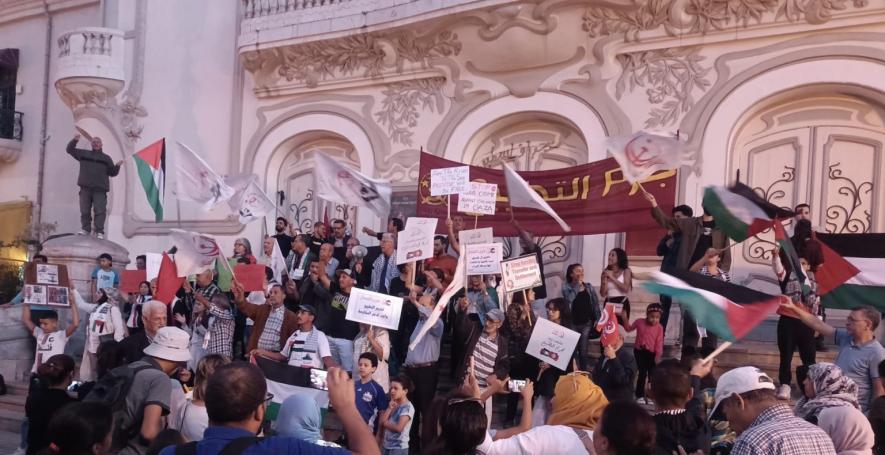
Photo: Workers’ Party of Tunisia
A day prior, on November 3, Tunisian President Kais Saied objected to a bill being debated in parliament that would punish the “crime of normalization” with Israel, citing threats to the country’s external security and foreign interests. The move took place against the backdrop of major protests in the country demanding that ties with Israel be banned.
On Saturday, progressive organizations including the Workers’ Party in Tunisia held a demonstration outside the Municipal Theater in the capital city. Addressing the gathering, the Workers’ Party general secretary, Hamma Hammami, condemned Saied’s actions as a “stab to Palestine at a time when its people in Gaza are subjected to a war of extermination”.
In a statement, the Workers Party condemned the president’s objection, which marked a turn in his previous stance against opposition, as a capitulation to Western colonial and imperialist powers and an “insult” to the Tunisian people.
This chasm between the government and the will of the people was also on clear display in Morocco, which officially normalized ties with Israel in 2020, on November 4. The Moroccan Front to Support Palestine and Against Normalization organized renewed protests and demonstrations in several cities including Tangier and Chefchaouen. Another protest was held in Casablanca on Sunday in protest of the “escalating barbaric aggression” on Gaza.
Protests have also been held in other parts of the African continent in recent days, including a major demonstration that took place in the Ghanaian capital of Accra on November 2, as well as a protest outside the Grand Mosque in Dakar, Senegal. Protests have also been held in South Africa , targeting not only South Africa’s diplomatic ties with Israel, which were put on pause on Monday as South Africa recalled its diplomats to Israel, but also the capture of key industries in the country by Israeli companies.
Meanwhile, in Lebanon, the Democratic Front for the Liberation of Palestine (DFLP) organized a sit-in protest outside the UK embassy in Beirut. Youssef Ahmed, a member of the DFLP’s polit-bureau said, “What the Palestinian people are exposed to in the Gaza Strip is a war of genocide with the participation of the United States and Western countries, through which Israel seeks to impose its liquidation projects, especially the displacement, deportation and annexation plans.”
“Our bet is on the [Palestinian] resistance and on the steadfastness of the people [and it] is a safe bet, and the coming days will confirm the correctness of this choice.”
Protest actions were held in the Syrian capital of Damascus, including by Palestinian refugees living in the Yarmouk camp, where they set up a sit-in protest tent. Meanwhile, a solidarity action was also organized in Baghdad, Iraq.
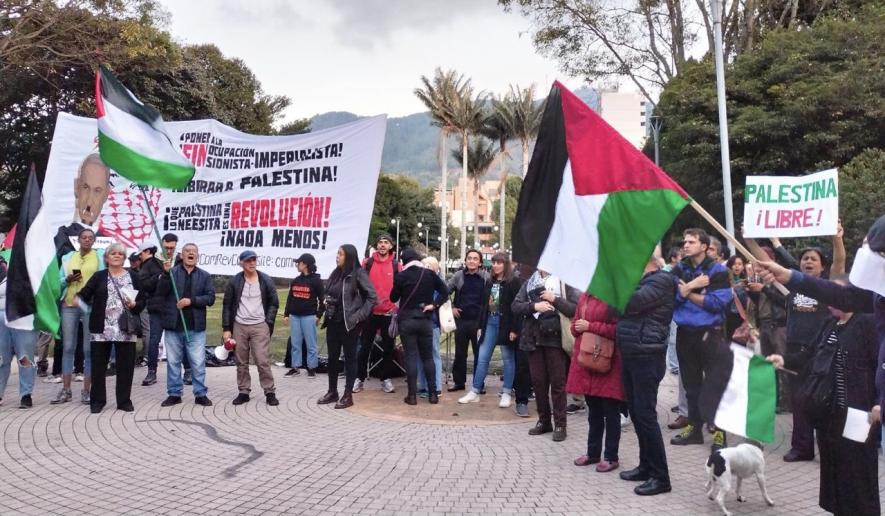
Protest at the Yarmouk camp in Damascus.
Though most governments in the Arab and Maghreb region have refused to heed to popular demands for substantive political action against Israel (some of whom have also normalized ties with Israel via US-brokered deals), people have continued to take to the streets in support of Palestine.
A massive demonstration was held in Egypt’s Taiz governorate on Saturday, organized by trade unions, political parties, and civil society groups including the People’s Committee to Support the Issues of Palestine. In a statement, the coalition called upon Arab and Islamic countries to take a “practical and responsible” position to stop the genocide in Gaza, and before that, to deliver aid, fuel and medicines to the besieged area.
The groups called upon the Egyptian state to exercise its sovereignty over the Rafah border crossing— the only way out of Gaza that is not under Israeli control— and to open the passage permanently for the entry of necessary relief materials.
They also implored countries in the region to immediately cut ties with the Zionist entity, to suspend any diplomatic and economic transactions and the supply of oil and gas to all countries supporting the aggression against Palestine, and to extend support to the Palestinian resistance “with all available means”.

Photo: Workers’ Party of Tunisia
A day prior, on November 3, Tunisian President Kais Saied objected to a bill being debated in parliament that would punish the “crime of normalization” with Israel, citing threats to the country’s external security and foreign interests. The move took place against the backdrop of major protests in the country demanding that ties with Israel be banned.
On Saturday, progressive organizations including the Workers’ Party in Tunisia held a demonstration outside the Municipal Theater in the capital city. Addressing the gathering, the Workers’ Party general secretary, Hamma Hammami, condemned Saied’s actions as a “stab to Palestine at a time when its people in Gaza are subjected to a war of extermination”.
In a statement, the Workers Party condemned the president’s objection, which marked a turn in his previous stance against opposition, as a capitulation to Western colonial and imperialist powers and an “insult” to the Tunisian people.
This chasm between the government and the will of the people was also on clear display in Morocco, which officially normalized ties with Israel in 2020, on November 4. The Moroccan Front to Support Palestine and Against Normalization organized renewed protests and demonstrations in several cities including Tangier and Chefchaouen. Another protest was held in Casablanca on Sunday in protest of the “escalating barbaric aggression” on Gaza.
Protests have also been held in other parts of the African continent in recent days, including a major demonstration that took place in the Ghanaian capital of Accra on November 2, as well as a protest outside the Grand Mosque in Dakar, Senegal. Protests have also been held in South Africa , targeting not only South Africa’s diplomatic ties with Israel, which were put on pause on Monday as South Africa recalled its diplomats to Israel, but also the capture of key industries in the country by Israeli companies.
Meanwhile, in Lebanon, the Democratic Front for the Liberation of Palestine (DFLP) organized a sit-in protest outside the UK embassy in Beirut. Youssef Ahmed, a member of the DFLP’s polit-bureau said, “What the Palestinian people are exposed to in the Gaza Strip is a war of genocide with the participation of the United States and Western countries, through which Israel seeks to impose its liquidation projects, especially the displacement, deportation and annexation plans.”
“Our bet is on the [Palestinian] resistance and on the steadfastness of the people [and it] is a safe bet, and the coming days will confirm the correctness of this choice.”
Protest actions were held in the Syrian capital of Damascus, including by Palestinian refugees living in the Yarmouk camp, where they set up a sit-in protest tent. Meanwhile, a solidarity action was also organized in Baghdad, Iraq.

Protest at the Yarmouk camp in Damascus.
Asia
Mobilizations also took place in parts of south and south-east Asia, including in the Philippines, the Partido Manggagawa (Labor Party) mobilized workers and youth and held solidarity actions in the capital city of Manila, Bacolod, and Cebu.
“The retaliatory campaign by Israel to completely siege Gaza by cutting off food, water, and electricity supplies to annihilate ‘subhuman’ Palestinians is not simply out of bounds but is downright genocide that needs to be opposed to avert a colossal humanitarian crisis,” the party said in a statement.
“We continue to emphasize that the only solution we see for peace to finally reign in this region is for the peoples of the world, along with institutions such as the United Nations, to campaign for an end to Israel’s occupation and continued land grabbing in Palestinian territories, and to guarantee the right to self-determination of the Palestinian people.”
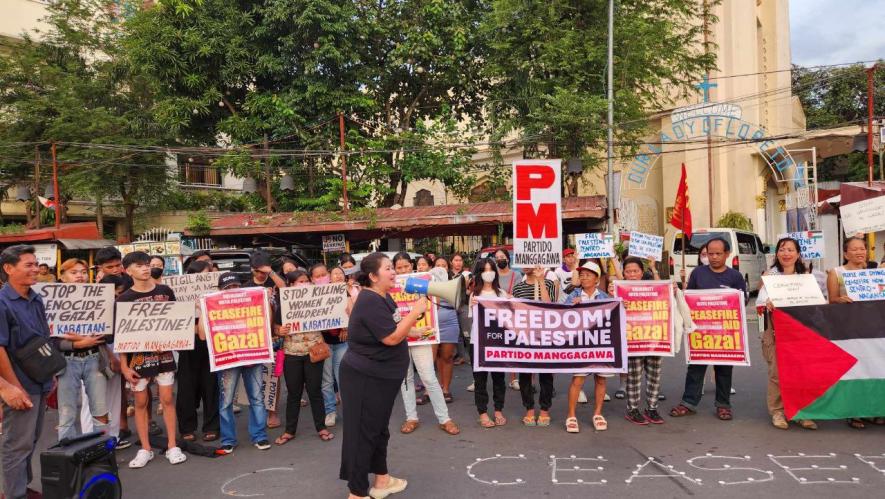
Photo: Partido Manggagawa
Scenes of solidarity were also witnessed in Pakistan, where the Mazdoor Kissan Party (PMKP), under the banner of the Left Democratic Front coalition, organized protests in cities including Karachi, Lahore, Islamabad, Hastinagar and Hyderabad.
While condemning the silence of the UN, and the complicity of the US empire in the genocide in Gaza, the PMKP called upon progressive forces across the world to stand with the Palestinian people in pursuit of their rights— “The Palestinian people in Gaza have opened a new chapter in the history of the war of national liberation and opened a new horizon of hope for the oppressed and a bright change for the future of humanity”.
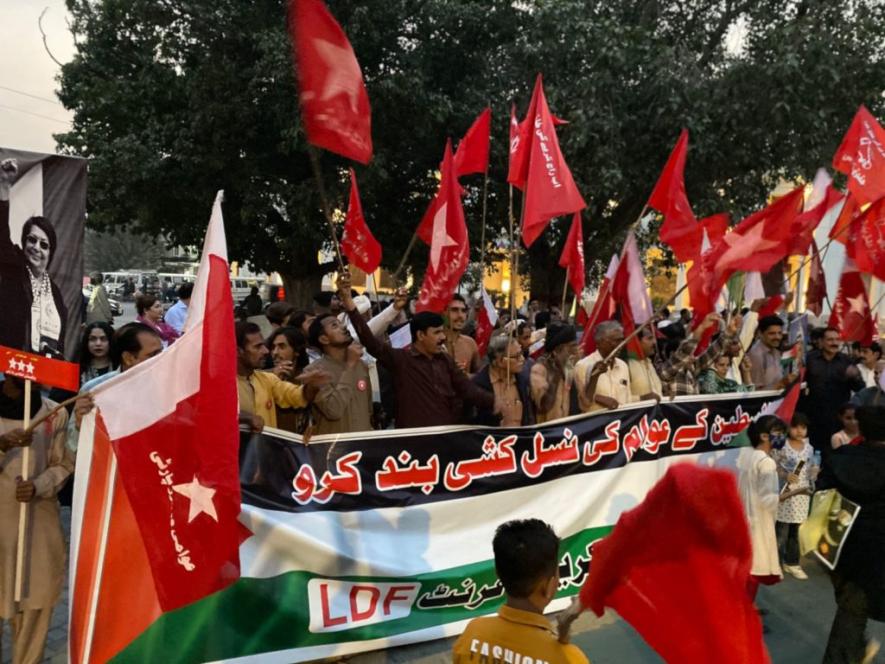
Palestine solidarity protest organized by the Left Democratic Front in Pakistan. Photo:Mazdoor Kisan Party
Mobilizations also took place in parts of south and south-east Asia, including in the Philippines, the Partido Manggagawa (Labor Party) mobilized workers and youth and held solidarity actions in the capital city of Manila, Bacolod, and Cebu.
“The retaliatory campaign by Israel to completely siege Gaza by cutting off food, water, and electricity supplies to annihilate ‘subhuman’ Palestinians is not simply out of bounds but is downright genocide that needs to be opposed to avert a colossal humanitarian crisis,” the party said in a statement.
“We continue to emphasize that the only solution we see for peace to finally reign in this region is for the peoples of the world, along with institutions such as the United Nations, to campaign for an end to Israel’s occupation and continued land grabbing in Palestinian territories, and to guarantee the right to self-determination of the Palestinian people.”

Photo: Partido Manggagawa
Scenes of solidarity were also witnessed in Pakistan, where the Mazdoor Kissan Party (PMKP), under the banner of the Left Democratic Front coalition, organized protests in cities including Karachi, Lahore, Islamabad, Hastinagar and Hyderabad.
While condemning the silence of the UN, and the complicity of the US empire in the genocide in Gaza, the PMKP called upon progressive forces across the world to stand with the Palestinian people in pursuit of their rights— “The Palestinian people in Gaza have opened a new chapter in the history of the war of national liberation and opened a new horizon of hope for the oppressed and a bright change for the future of humanity”.

Palestine solidarity protest organized by the Left Democratic Front in Pakistan. Photo:Mazdoor Kisan Party
Europe
Protests and demonstrations were also held across Europe on Saturday. In Italy, more than 10,000 people gathered in Rome for a national demonstration organized by the left-wing Power to the People (PaP) party and joined by various civil society groups, unions, and political parties to demand a ceasefire in Gaza, for an end to the Israeli apartheid regime and the occupation of Palestine.
Protesters further called for the revocation of the military cooperation agreement between Italy and Israel, and for Israeli Prime Minister Benjamin Netanyahu to be tried at the International Criminal Court. The protest action also raised broader issues including an end to the supply of arms for the proxy war in Ukraine, and for cuts to military spending to expand social expenses.
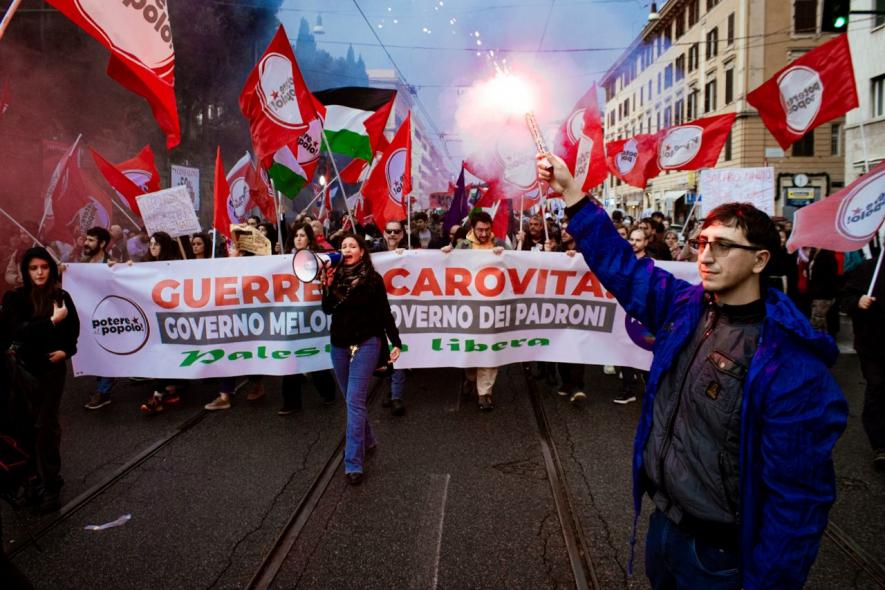
Protest for Palestine in Rome. Photo: Potere al Popolo
Around 10,000 people also gathered in the city of Milan to demand a ceasefire in Gaza and in solidarity with the Palestinian people.
On November 6, students part of the Self-Organized University Collective (CAU) at the L’Orientale University of Naples occupied the Palazzo Giusso building in solidarity with the Palestinian people.
“For almost a month, in Gaza, in the silence and complicity of Western governments, primarily the Italian one, a genocide perpetrated against the Palestinian population has been taking place.
“If the institutions and the media have demonstrated a clear desire to cover up the war crimes for which the Israeli government is responsible, it is urgent and necessary that a response in solidarity with the Palestinian people starts from the bottom, from us students who do not want to remain in silence in the face of all this,” the Collective said in a statement.
Demonstrations were held across France on Friday organized by 100 trade unions, political parties, and civil society organizations, including the General Confederation of Labor (CGT) and La France Insoumise as part of the “National Collective for a Just and Lasting Peace between Palestine and Israelis”.
According to LFI, 60,000 people gathered for the demonstration in Paris. The demands raised during the protests included an immediate ceasefire in Gaza, an end to bombings and forced displacement of the Palestinian population, immediate lifting of the blockade, protection of the Palestinian people in Gaza and the West Bank. The collective also called for the “construction of a just and lasting peace in Palestine, in accordance with UN resolutions so that the rights of the Palestinians are finally recognized”.
“This is an absolutely appalling massacre that is in place and is being organized by Mr. Netanyahu in a methodical and not at all improvised way.” said LFI leader Jean-Luc Mélenchon. He further condemned the French government’s call for a “humanitarian truce” — “Why talk about a humanitarian truce? What does that mean? Who will decide the start and especially the end of the truce?” — and called for an immediate ceasefire.
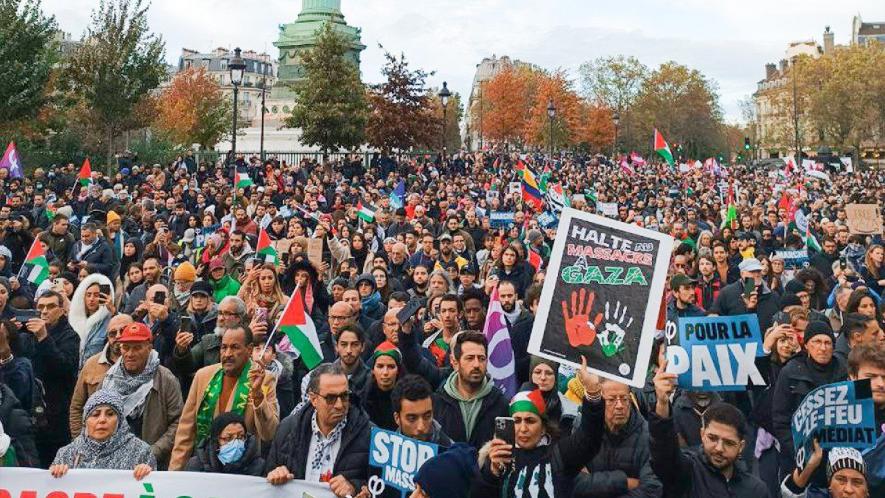
Mobilization in Paris for Palestine.
Demonstrations were similarly organized in communes throughout the country, including Épinal, Brioude, Saint-Claude, Albi, as well as several cities including Grenoble, Lille, Montpellier, Saint-Étienne, Lyon, Toulouse, Rouen, Nantes, Strasbourg, and Marseille, among others.
Thousands of people also took to the streets in a fresh day of protests in Berlin on November 4, resolutely defying an increasingly hostile government that has criminalized solidarity with Palestine.
Meanwhile, hundreds of thousands of people also took to the streets across the UK for a “Day of Action – Ceasefire Now!” organized by groups including the Palestine Solidarity Campaign. Saturday’s protests were organized at the local level ahead of a national mobilization set to take place on November 11.
In one of the biggest protests on November 4, 40,000 people gathered at Trafalgar Square in London to demand a ceasefire in Gaza. The names and ages of all Palestinian children killed by Israel were read out during the gathering, and the photos of the children were also displayed in tribute.
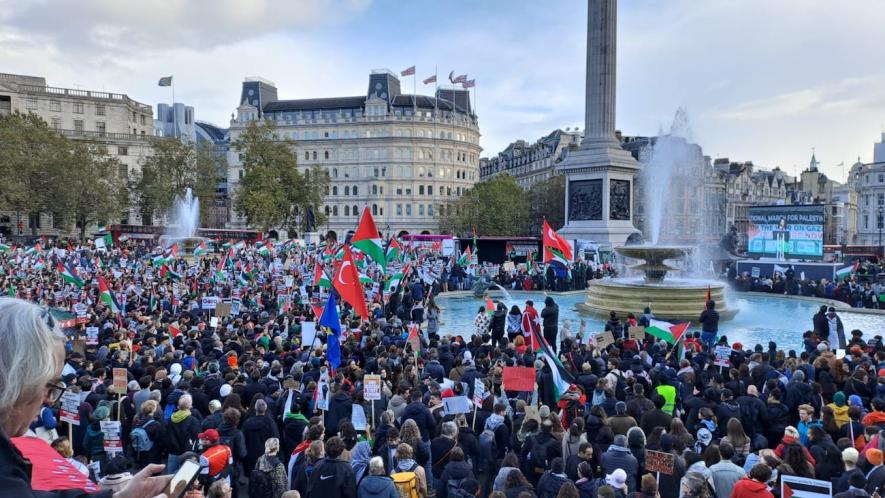
London for Palestine. Photo: PSC
Protests also took place in Bristol, Luton, Harrow, Newcastle, Leeds, York, Durham, and Cambridge. 20,000 people also marched through Manchester, with several thousand occupying the Piccadilly railway station.
“This is not just for the ongoing abominable genocide in Gaza…The massive mobilizations…are for the 75 years of Israel’s settler colonization of Palestine, brutal occupations, ethnically cleansing Palestinians, imprisoning them and mass murdering them,” said Adie Mormech of the Manchester Palestine Action, a direct action protest network.
“Palestine will always stand, and we won’t stop till they’re free,” he added, as quoted by the Morning Star.
Thousands of people also marched in the streets in Scotland, in actions organized in places including Aberdeen, Dundee, Dunfermilne, Glasgow and Edinburgh— where protesters took over the Central Station and the Waverly Station respectively in massive shows of solidarity.
Protests and solidarity actions were also organized across other parts of Europe, including in Bucharest in Romania and as well as in Spain including in Valencia and in Zaragoza, where the Communist Party of Spain organized a protest to demand an immediate end to all hostilities and the blockade of Gaza, for the Spanish state to recognize Palestine, and for the “return of all the territory to the Palestinian people”.
Thousands of people also joined the demonstration called by the Samidoun Palestinian Prisoner Solidarity Network in Barcelona on November 4 to demand “the end of the genocide, the massacres, and the impunity of the Zionist regime”, “to free all prisoners being held in Zionist prisoners”, and to “free Palestine from the River to the Sea”.
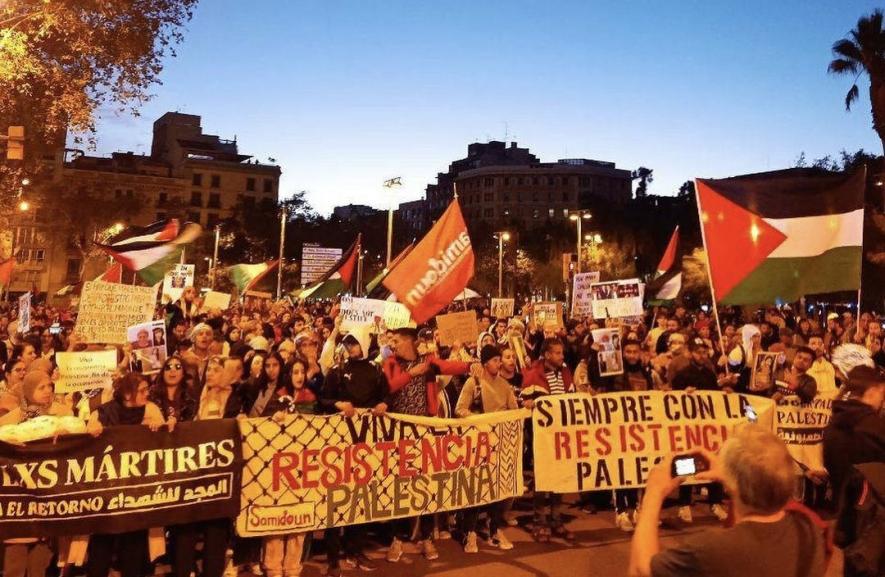
Photo: @samidoun.esp/Instagram
Actions were held in Bern in Switzerland on November 4, as well as a major rally in Oslo in Norway the day prior. Palestine Solidarity Austria also joined actions in the country on November 5, including in Salzburg and Vienna. Protests had also been held in Vienna on November 4 by the Global South Alliance, as well as in Innsbruck.
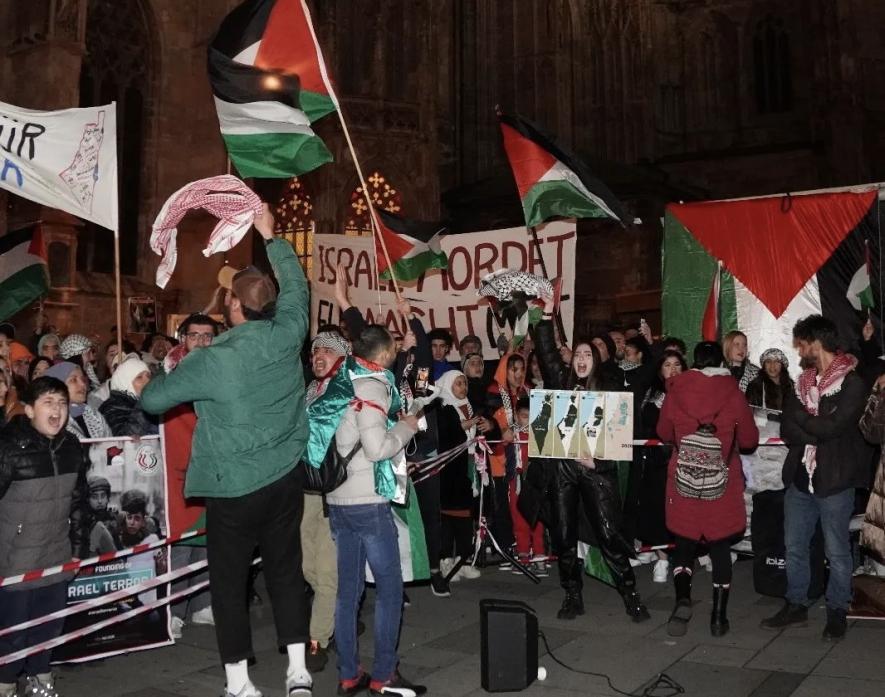
Protest action in Vienna on November 5. Photo: @palaestinasolidaritaet.at/Instagram
Latin America and the Caribbean
In the Latin America and the Caribbean region, a major action was organized in the city of São Paulo in Brazil on November 4. It featured powerful scenes including blindfolded protesters carrying blood-stained shrouds— a reminder of the horrific images that have emerged from Gaza of parents holding their slain children.
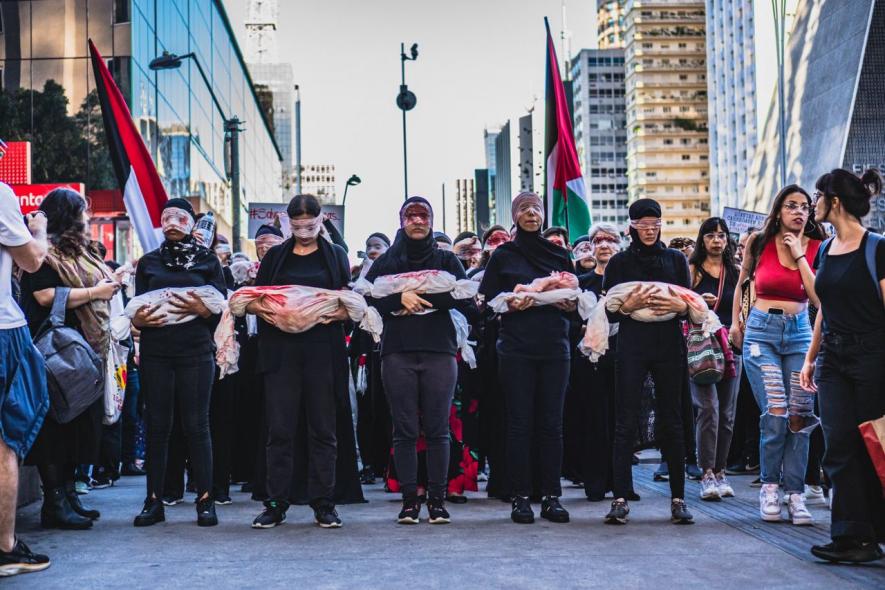
São Paulo for Palestine. Photo: Maneco Magnesio Guimarães
A demonstration was also held in the Colombian capital of Bogotá, with people raising the flag of Palestine and bearing banners with the slogans calling for an end to the “Zionist-imperialist occupation” and “liberate Palestine!”
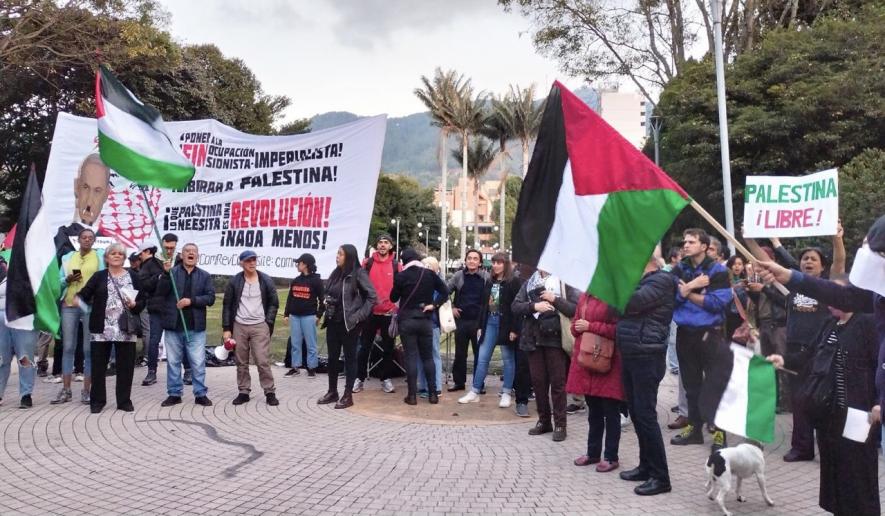
Bogotá for Palestine.
A demonstration and vigil for Palestine was also held in San Juan in Puerto Rico. “We witness Jabalya, we remember Jayuya”, read a protest sign, referencing the 1950 armed insurrection led by Nationalist Party against the US. During the vigil, prominent Puerto Rican activist, Tito Kayak, climbed a flagpole and removed the US flag and hoisted the Palestinian flag in its place.
Protests were also organized in Mexico, including in the city of Guadalajara on November 4, with hundreds of people marching in the streets demanding “a stop to the genocide in Gaza” and “Killing children is not self-defense”. Another protest was held by a group of more than 100 social organizations in Mexico City on November 6, with people painting the Palestinian flag outside the National Palace. Protesters demanded the breaking off of ties with Israel and raised the slogan “Netanyahu, fascist. You are a terrorist!”.
A protest was also held in Uruguay calling for an to the genocide in Gaza. Meanwhile, in Honduras, an action was held at the Camp Viva Berta, named after the slain Indigenous activist, in Tegucigalpa on November 2 by the National Network of Women Human Rigths Defenders in Honduras to denounce the genocide in Gaza and express their support for the Palestinian people.
“We regret the pseudo-pacifist speeches of those who speak of a conflict in order not to point out those who for decades have uprooted the grass, the water and the vital breath of the living being of this ancient land of Palestine.”
People also gathered in the streets of Buenos Aires on Friday November 3, bearing the Palestinian flag and raising banners that read “It is not a war, it is a genocide”. Protesters also demanded the expulsion of Israel’s national water company, Mekorot, from Argentina.
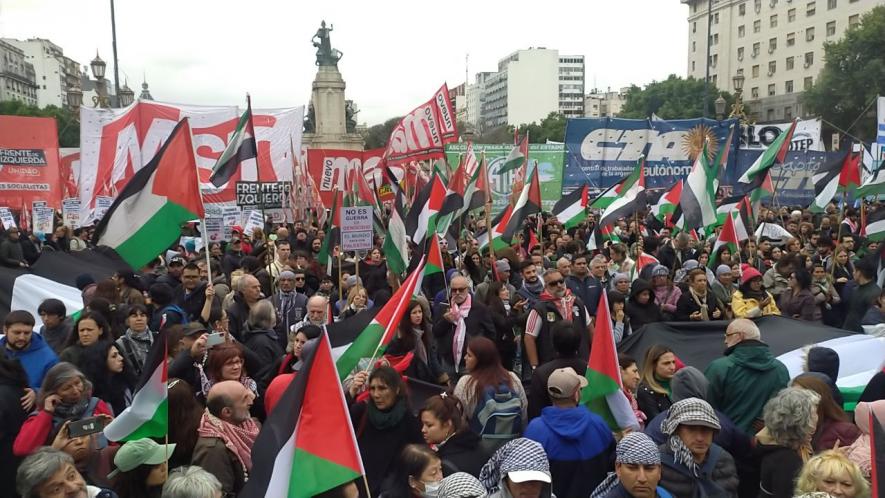
Buenos Aires rally for Palestine. Photo: Rafael Soriano
“Gaza resists. Palestine exists. An end to Zionist apartheid!” read a slogan during the march in the capital of Santiago in Chile. Thousands of people also gathered in the Venezuelan capital of Caracas on Saturday for a massive solidarity march, which was also attended by government officials, including Venezuelan Vice President Delcy Rodriguez.
“Palestinians are our brothers…Palestine, we are going to defend it as if it were Venezuela,” one protester stated.
Protests and demonstrations were also held across Europe on Saturday. In Italy, more than 10,000 people gathered in Rome for a national demonstration organized by the left-wing Power to the People (PaP) party and joined by various civil society groups, unions, and political parties to demand a ceasefire in Gaza, for an end to the Israeli apartheid regime and the occupation of Palestine.
Protesters further called for the revocation of the military cooperation agreement between Italy and Israel, and for Israeli Prime Minister Benjamin Netanyahu to be tried at the International Criminal Court. The protest action also raised broader issues including an end to the supply of arms for the proxy war in Ukraine, and for cuts to military spending to expand social expenses.

Protest for Palestine in Rome. Photo: Potere al Popolo
Around 10,000 people also gathered in the city of Milan to demand a ceasefire in Gaza and in solidarity with the Palestinian people.
On November 6, students part of the Self-Organized University Collective (CAU) at the L’Orientale University of Naples occupied the Palazzo Giusso building in solidarity with the Palestinian people.
“For almost a month, in Gaza, in the silence and complicity of Western governments, primarily the Italian one, a genocide perpetrated against the Palestinian population has been taking place.
“If the institutions and the media have demonstrated a clear desire to cover up the war crimes for which the Israeli government is responsible, it is urgent and necessary that a response in solidarity with the Palestinian people starts from the bottom, from us students who do not want to remain in silence in the face of all this,” the Collective said in a statement.
Demonstrations were held across France on Friday organized by 100 trade unions, political parties, and civil society organizations, including the General Confederation of Labor (CGT) and La France Insoumise as part of the “National Collective for a Just and Lasting Peace between Palestine and Israelis”.
According to LFI, 60,000 people gathered for the demonstration in Paris. The demands raised during the protests included an immediate ceasefire in Gaza, an end to bombings and forced displacement of the Palestinian population, immediate lifting of the blockade, protection of the Palestinian people in Gaza and the West Bank. The collective also called for the “construction of a just and lasting peace in Palestine, in accordance with UN resolutions so that the rights of the Palestinians are finally recognized”.
“This is an absolutely appalling massacre that is in place and is being organized by Mr. Netanyahu in a methodical and not at all improvised way.” said LFI leader Jean-Luc Mélenchon. He further condemned the French government’s call for a “humanitarian truce” — “Why talk about a humanitarian truce? What does that mean? Who will decide the start and especially the end of the truce?” — and called for an immediate ceasefire.

Mobilization in Paris for Palestine.
Demonstrations were similarly organized in communes throughout the country, including Épinal, Brioude, Saint-Claude, Albi, as well as several cities including Grenoble, Lille, Montpellier, Saint-Étienne, Lyon, Toulouse, Rouen, Nantes, Strasbourg, and Marseille, among others.
Thousands of people also took to the streets in a fresh day of protests in Berlin on November 4, resolutely defying an increasingly hostile government that has criminalized solidarity with Palestine.
Meanwhile, hundreds of thousands of people also took to the streets across the UK for a “Day of Action – Ceasefire Now!” organized by groups including the Palestine Solidarity Campaign. Saturday’s protests were organized at the local level ahead of a national mobilization set to take place on November 11.
In one of the biggest protests on November 4, 40,000 people gathered at Trafalgar Square in London to demand a ceasefire in Gaza. The names and ages of all Palestinian children killed by Israel were read out during the gathering, and the photos of the children were also displayed in tribute.

London for Palestine. Photo: PSC
Protests also took place in Bristol, Luton, Harrow, Newcastle, Leeds, York, Durham, and Cambridge. 20,000 people also marched through Manchester, with several thousand occupying the Piccadilly railway station.
“This is not just for the ongoing abominable genocide in Gaza…The massive mobilizations…are for the 75 years of Israel’s settler colonization of Palestine, brutal occupations, ethnically cleansing Palestinians, imprisoning them and mass murdering them,” said Adie Mormech of the Manchester Palestine Action, a direct action protest network.
“Palestine will always stand, and we won’t stop till they’re free,” he added, as quoted by the Morning Star.
Thousands of people also marched in the streets in Scotland, in actions organized in places including Aberdeen, Dundee, Dunfermilne, Glasgow and Edinburgh— where protesters took over the Central Station and the Waverly Station respectively in massive shows of solidarity.
Protests and solidarity actions were also organized across other parts of Europe, including in Bucharest in Romania and as well as in Spain including in Valencia and in Zaragoza, where the Communist Party of Spain organized a protest to demand an immediate end to all hostilities and the blockade of Gaza, for the Spanish state to recognize Palestine, and for the “return of all the territory to the Palestinian people”.
Thousands of people also joined the demonstration called by the Samidoun Palestinian Prisoner Solidarity Network in Barcelona on November 4 to demand “the end of the genocide, the massacres, and the impunity of the Zionist regime”, “to free all prisoners being held in Zionist prisoners”, and to “free Palestine from the River to the Sea”.

Photo: @samidoun.esp/Instagram
Actions were held in Bern in Switzerland on November 4, as well as a major rally in Oslo in Norway the day prior. Palestine Solidarity Austria also joined actions in the country on November 5, including in Salzburg and Vienna. Protests had also been held in Vienna on November 4 by the Global South Alliance, as well as in Innsbruck.

Protest action in Vienna on November 5. Photo: @palaestinasolidaritaet.at/Instagram
Latin America and the Caribbean
In the Latin America and the Caribbean region, a major action was organized in the city of São Paulo in Brazil on November 4. It featured powerful scenes including blindfolded protesters carrying blood-stained shrouds— a reminder of the horrific images that have emerged from Gaza of parents holding their slain children.

São Paulo for Palestine. Photo: Maneco Magnesio Guimarães
A demonstration was also held in the Colombian capital of Bogotá, with people raising the flag of Palestine and bearing banners with the slogans calling for an end to the “Zionist-imperialist occupation” and “liberate Palestine!”

Bogotá for Palestine.
A demonstration and vigil for Palestine was also held in San Juan in Puerto Rico. “We witness Jabalya, we remember Jayuya”, read a protest sign, referencing the 1950 armed insurrection led by Nationalist Party against the US. During the vigil, prominent Puerto Rican activist, Tito Kayak, climbed a flagpole and removed the US flag and hoisted the Palestinian flag in its place.
Protests were also organized in Mexico, including in the city of Guadalajara on November 4, with hundreds of people marching in the streets demanding “a stop to the genocide in Gaza” and “Killing children is not self-defense”. Another protest was held by a group of more than 100 social organizations in Mexico City on November 6, with people painting the Palestinian flag outside the National Palace. Protesters demanded the breaking off of ties with Israel and raised the slogan “Netanyahu, fascist. You are a terrorist!”.
A protest was also held in Uruguay calling for an to the genocide in Gaza. Meanwhile, in Honduras, an action was held at the Camp Viva Berta, named after the slain Indigenous activist, in Tegucigalpa on November 2 by the National Network of Women Human Rigths Defenders in Honduras to denounce the genocide in Gaza and express their support for the Palestinian people.
“We regret the pseudo-pacifist speeches of those who speak of a conflict in order not to point out those who for decades have uprooted the grass, the water and the vital breath of the living being of this ancient land of Palestine.”
People also gathered in the streets of Buenos Aires on Friday November 3, bearing the Palestinian flag and raising banners that read “It is not a war, it is a genocide”. Protesters also demanded the expulsion of Israel’s national water company, Mekorot, from Argentina.

Buenos Aires rally for Palestine. Photo: Rafael Soriano
“Gaza resists. Palestine exists. An end to Zionist apartheid!” read a slogan during the march in the capital of Santiago in Chile. Thousands of people also gathered in the Venezuelan capital of Caracas on Saturday for a massive solidarity march, which was also attended by government officials, including Venezuelan Vice President Delcy Rodriguez.
“Palestinians are our brothers…Palestine, we are going to defend it as if it were Venezuela,” one protester stated.
Thousands Turn up at Kolkata Rally Condemning Israeli Attack on Palestine
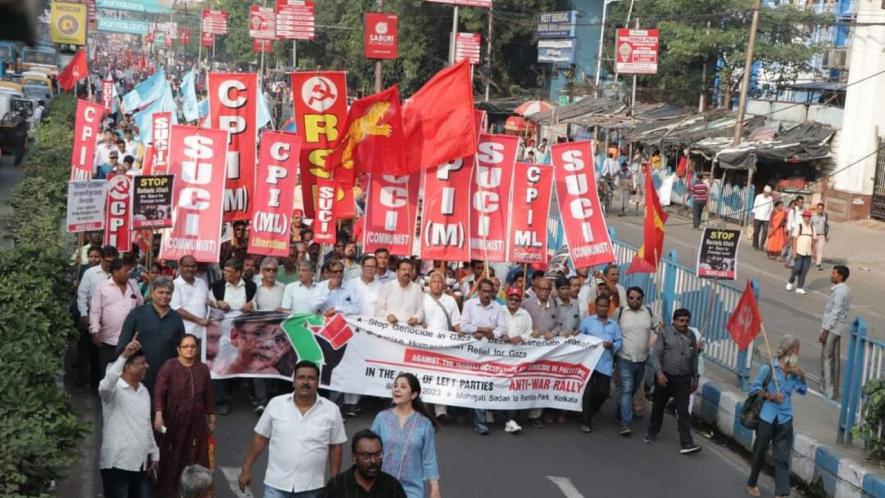
Kolkata: Thousands of people on Wednesday took part in an anti-imperialist march against Israel in Kolkata, gathering from south Bengal districts. The rally, which started from Mahajati Sadan in Kolkata, continued up to Ramlila Park in the Park Circus area, covering a distance of nearly three kilometres.
The rally was joined by working-class people, teachers, students, and peace activists, and was resplendent with slogans and placards. "Say no to war" read numerous placards, with the pictorial depiction of the condition of the Gaza strip. Left Front Chairman Biman Basu, CPI(M) state secretary MD Salim, Abhijit Majumdar of CPI(ML) Liberation, Naren Chatterjee of Forward Block, Swapan Banerjee of CPI, Tapan Hore (RSP), Tarun Mondal of SUCI also took part in the huge rally and led it from the front.
Arindam Mukherjee, a peace activist from Kolkata who was at the rally, told NewsClick that this rally represented the penchant of the majority of the people of West Bengal to stop the imperialist war on the Gaza strip, which has been under Israeli occupation for a long time.
He added that a section of the Indian media is following the wish of the ruling Bharatiya Janata Party by toeing the line of supporting Israel in the war. It amounts to supporting state-sponsored terrorism in the Middle East, he said, talking with Newsclick while walking in the rally. He also strongly criticised the present inclination of India, which, according to him, is to become a junior partner to the USA and take a reactionary role in the Middle East, removing itself from its earlier role of supporting the Palestinian state and its liberation struggle against Zionist Israel.
Speaking at the rally after the march, Left Front Chairman Biman Basu said that in Palestine, Israel is continuing with genocide after being armed by the imperialist USA. Till now, there have been more than 10,000 deaths in the Gaza Strip alone, a large number of whom are women and children. He mentioned there have been protests against Israel's aggression in Western cities like London and Paris, and Indians, too, have to protest against this genocide in large numbers.
After the protest march in Kolkata, similar marches in a decentralised manner will take place in all the district towns of the state on November 9 and 10, Basu added.
CPI(M) State Secretary MD Salim, in his speech, traced the historical anti-imperialist role played by the people of Kolkata against any imperialist intervention across the globe. He reminded people of the role played by Kolkata during the Vietnam War. The Palestinian liberation struggle was intrinsically related to the Indian Independence movement, he said, and added that even Mahatma Gandhi and Jawaharlal Nehru were all in support of the people of Palestine and were against Zionist aggression of Israel.
He also strongly condemned the role played by the Rashtria Swayamsevak Sangh (RSS), which did not oppose the British during the country's freedom struggle. Hence, they are now taking the side of Israel during the time of this war, Salim claimed. Because of this, India abstained from voting when a proposal was taken at the United Nations condemning Israel, the Left leader said.
While people all throughout the globe are condemning the role played by Israel, the Indian Hindutva proponents are finding similarities between Zionists and Hindutva and are supporting Israel, while the ruling party of West Bengal, Trinamool Congress, is maintaining a stoic silence on the issue, he added.
